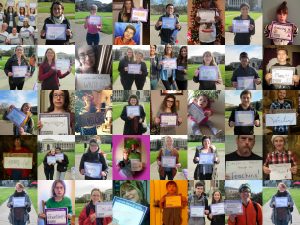Click here to view the embedded video.
Why do some marriages last and others fall apart?
This is a question that troubles countless people who may be worried about their parents divorcing, their spouse leaving them, or that an upcoming marriage won’t last. While there are no easy answers, Dr. John Gottman’s research can help shed light on this critical question.
As anybody in a relationship knows, sometimes major fights stem from seemingly insignificant interactions. Maybe one person bought the wrong milk at the store, failed to hang up a coat, or simply seemed distant in conversation. This can lead to a sharp criticism, spiraling into a significant conflict.
But why is it that these minor instances can explode in such a fashion? Often, they can just be the result of miscommunication or of a lack of understanding of the other’s feelings. The real problem, as Dr. Gottman describes it, arises when contempt enters the equation.
Contempt arises from unresolved negative thoughts about your spouse or the, perhaps subconscious, belief that you are superior. Often, these underlying feelings manifest themselves in the form of overly aggressive reactions, such as hostile humor, name-calling, or body language such as eye-rolling.
Not only do these reactions turn an otherwise minor conflict into an intractable war, but they also lead to more conflict down the line, making this behavior a leading cause of failed marriages. In fact, contempt can even lead to declined physical health, resulting in infectious illnesses like colds and the flu!
Dr. Gottman’s research, demonstrates just how dangerous these attitudes can be to the health of a relationship. While partnering with Berkeley psychologist Robert Levenson, the two researchers studied 79 Midwestern couples over the course of fourteen years. This 2002 study found that contempt, in addition to related behaviors, predicted divorce with 93 percent accuracy.
In a more recent study of 373 couples, Dr. Gottman found that acts of contempt and general disregard in the first year of marriage were strongly related to future divorces.
Given the acute danger of such underlying behaviors, it is especially critical to be mindful and aware of them. Dr. Gottman attempts to provide lessons that can reduce the catastrophic impact of contempt. Instead of focusing on the negative behaviors of a partner, for example, he recommends working to cultivate a sense of appreciation and respect for positive behaviors.
While this can take time and effort, it is important to see how any given interaction helps pave the way towards this sense of appreciation. It is helpful to consider other, related, relationship killers such as criticism.
In the case of criticism, he distinguishes critiques of the person’s behavior from their character, urging couples to avoid criticisms of character in favor of expressing positive desires. Rather than accusing a partner of some deficiency, one ought to express an active desire. This can involve pointedly asking for your spouse’s attention, rather than accusing them of never listening.
For more information on Dr. Gottman’s research, see our past blogs here and here.
 We’ve all met that absolutely brilliant friend who still cannot read emotion any better than we can read Kant. This is a powerful example of the notion of emotional intelligence, which is often quite different from more traditional conceptions of intelligence.
We’ve all met that absolutely brilliant friend who still cannot read emotion any better than we can read Kant. This is a powerful example of the notion of emotional intelligence, which is often quite different from more traditional conceptions of intelligence. Moebius Syndrome, a rare form of facial paralysis, makes social interaction particularly difficult. Because this condition prevents people from displaying any form of facial expression, those dealing with it are often seen as unhappy or downright unfriendly.
Moebius Syndrome, a rare form of facial paralysis, makes social interaction particularly difficult. Because this condition prevents people from displaying any form of facial expression, those dealing with it are often seen as unhappy or downright unfriendly.